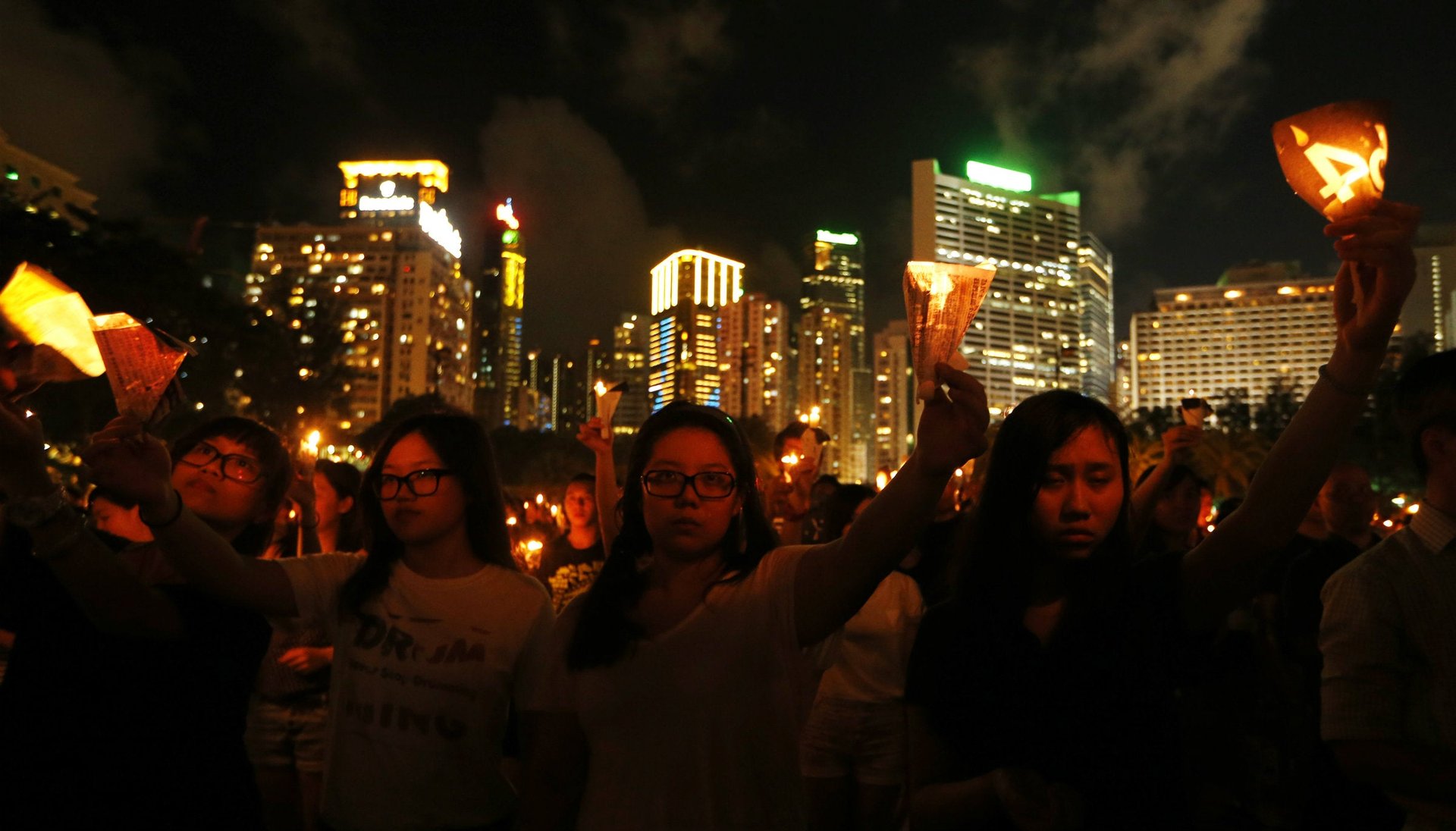Hong Kong’s pro-democracy students have abandoned the Tiananmen anniversary vigil to start their own
HONG KONG—Every year on June 4th, Hong Kong’s Victoria Park turns into a silent sea of flickering candles as tens of thousands of residents dressed in black pause to remember the Chinese pro-democracy movement that ended in a violent military crackdown 26 years ago, also known as the Tiananmen Massacre.


HONG KONG—Every year on June 4th, Hong Kong’s Victoria Park turns into a silent sea of flickering candles as tens of thousands of residents dressed in black pause to remember the Chinese pro-democracy movement that ended in a violent military crackdown 26 years ago, also known as the Tiananmen Massacre.
This year is different. An event that once brought democracy supporters together in the largest annual commemoration of the 1989 protests is fast becoming an illustration of how divided the pro-democracy movement in Hong Kong, as well as across Greater China, has become.
After leading pro-democracy protests that shut down Hong Kong for weeks last year, a student group that has always been a force behind the vigil is boycotting the event, having decided that reforming Hong Kong should be their priority. Students are holding a separate vigil focused on democracy in the semi-autonomous territory instead of the politics of the Chinese mainland. Another group of activists is holding its own vigil across Victoria Harbor underneath a clock tower. Activists supporting an autonomous Hong Kong have called on the city to boycott the memorial altogether, claiming that the Chinese political system has nothing to do with Hong Kongers.
Hong Kong, where many Chinese activists first fled after the crackdown in 1989, was once thought of as a potential model for China’s eventual democratization as well as a base for ideas to infiltrate the mainland. Today, it seems the reverse has happened. The Hong Kong government is more under the influence of Beijing than at any point since its return past and that doesn’t seem likely to change soon.
On the mainland, where the anniversary is being forcefully ignored, that lack of progress is also on display today. Dissidents have been rounded up and detained, forced to go traveling with minders for a few days, or simply had their homes and electronics bugged. The government corruption that brought students out to protest in 1989 is in many ways worse today.
With the splintering of pro-democracy supporters in Hong Kong, progress in Hong Kong and on the mainland looks even less likely. The Occupy movement has failed to generate the same kind of public support it commanded last year. The electoral reform package they first rallied against looks set to fail in the legislature later this month but no alternative has been proposed, which brings the city back to square one.
Democratic lawmakers and other activists in Hong Kong argue that political reform in China is important for Hong Kong. ”Occupy was in a way a mini-June 4 for Hong Kong,” said Lee Cheuk-yan, one of the organizers of the Victoria Park vigil. “We should not separate our fight for democracy from that of China’s. We should link up the two and fight in unity.”